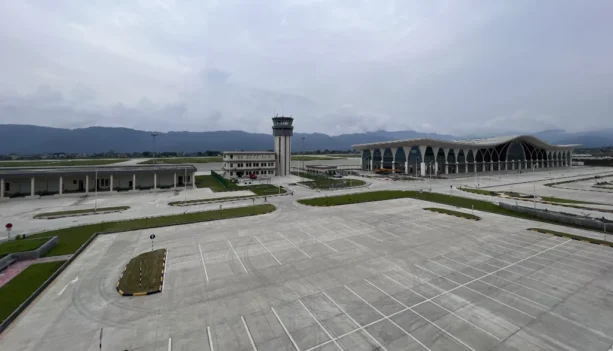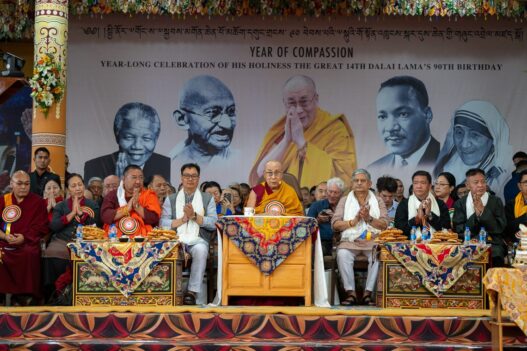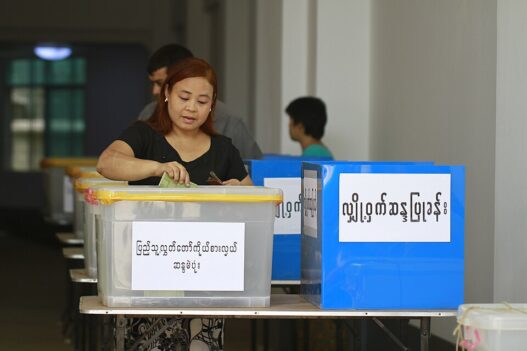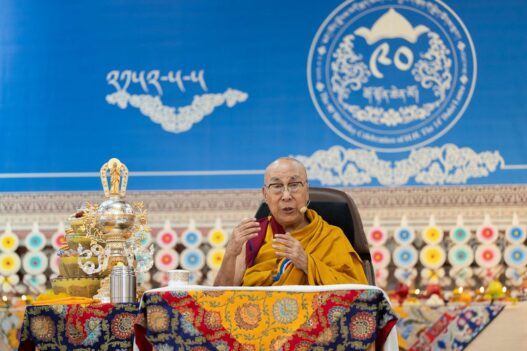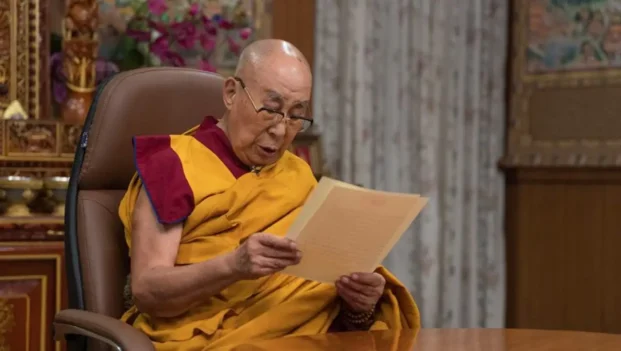The Meitei community’s demand for Scheduled Tribe (ST) status has continued for decades. Citing cases of pertinent threats to their land, culture, and identity from external influences, they demand ST status be granted to their community. However, their demands have been vehemently opposed by the All Tribal Students’ Union, Manipur (ATSUM) and All Naga Students Association, Manipur (ANSAM), who see it as a threat instead.
The issue has clearly gained momentum with the different organisations pitching their own opinions and demands. The Scheduled Tribe Demand Committee Manipur (STDCM), led by its President, Dhiraj Yumnam, visited the outer Manipur MP, Lorho S Pfoze in his residence and submitted a memorandum. They sought his support to get the Meitei community under the ST category. Moreover, they also asked him to convince the ATSUM to support their cause. In the memorandum, they wrote that the Meitei community fulfils all the criteria to be labelled as a “tribe”, yet they do not have the ST status.

This isn’t the first time the committee has made such an initiative. Earlier, they sent out various memorandums to different Members of Parliaments (MPs) and Member of Legislative Assemblies (MLAs) from the Imphal Valley, who had expressed their support for the cause. Moreover, they have also been pressuring the Biren Singh-led state Government to conduct an ethnographic survey of the Meiteis, alongside listing down socio-economic characteristics to send to the authorities at the centre.
STDCM’s views on the Meitei community’s “exclusion” from ST list
In Manipur, 39 constituencies elect general Meitei representatives, one constituency is reserved for the Scheduled Castes (SCs), and 19 are reserved for the Scheduled Tribes (STs). Those demanding ST status for Meiteis allege that with inputs only from some members of their community (who claimed to be upper castes), they were wrongfully excluded from the ST list when the categories were being defined.
They claim that since they lack constitutional safeguards, they would be reduced to becoming a minority in their own lands, primarily due to the rising unchecked influx of immigrants from Bangladesh and Myanmar. Furthermore, demands for implementing the national Register of Citizens (NRC) in Manipur to weed out illegal immigrants by identifying them and housing them in shelter homes are gaining momentum simultaneously. One prominent member of the STDCM highlighted how their community had been reduced to merely 44% of the state population in the 2011 Census when in fact, during the 1951 Census, they accounted for roughly 59% of the population.
Read this: Fault Lines Drawn: Demand for NRC grows in Manipur

Moreover, they claim that if demands for ST status are given to the Meiteis, there will be greater integration and harmony between the hill and valley peoples. Currently, the Meiteis are not allowed to buy land in the hill districts, but the tribals can own land and settle in Imphal Valley, which roughly accounts for about 10% of the total geographical area.
Though their anxieties about scarce resources are understandable, However, it is unlikely that if the Meiteis get ST status, there will be greater harmony between the hill and valley peoples as the Meiteis hold socio-economic and political privileges over the hill tribes. L Lam Khan Piang, Professor of Sociology at Jawaharlal Nehru University, argues that merely changing the administrative category of a dominant community like the Meiteis won’t bridge the gaps in development. The hill districts remain plagued by various problems of bad road conditions, inadequate political representation, and poor infrastructure in health and education.
The Meiteis are well-represented in the bureaucracy and occupy crucial positions in the government. The Manipur State Assembly has 40 Meitei MLA representatives out of 60. The Imphal Valley is also well-connected with other states and countries via the Imphal International Airport and three critical national highways that pass through it.
Tribal groups opposition to STDCM’s ST demands
However, the tribal organisations have expressed their fears that granting ST status to the dominant Meitei community will affect their communities and their access to the reservation in jobs and education. Moreover, there have been various rumours about how several Meitei families from the general category have secured admission to various reputed colleges, like the University of Delhi, by getting fraudulent certificates.

Many tribal leaders of the ATSUM have also repeatedly said that if a dominant community like the Meiteis get reservation, they will start buying up lands in the hill districts. They also fear that the Meiteis will fill the seats for the ST candidates, leaving no room for the other tribals. Moreover, the tribals of Manipur are not protected by the Sixth Schedule and calls to bring their areas under the purview of that law have been stalled by the Government of Manipur.
However, the Hills Area Committee (HAC) Chairperson, Dipu Gangmei, has announced that their organisation is not against the STDCM’s demands for ST status. He called on the people of Manipur to rely on the Centre and National ST Commission rather than being led by emotion.
Read this: Suspension of Operation and its Political Development in Manipur
The road ahead
Since the STDCM and World Meitei Council wish to place the ball in the centre’s court, the people of Manipur will have to wait and see how things progress from the centre. Ethnic tensions could rise with anxieties about land and reservation becoming stronger. Thiyam Bharat Singh, a professor at Manipur University, has discussed the necessity of dialogues between different communities for peace and harmony.
Some STDCM members have expressed openness to ensure their ST status demands don’t hurt the communities already on the list. Probably something similar to the reservation policies in the states of Assam, Nagaland, and Meghalaya could also be worked out in Manipur. In Nagaland, people from the “backward tribes” like the Konyak, Chang, Khiamniungan, and Sangtam communities, among others, have reservations in government jobs. In Assam, the tribals are divided into the hill and plain tribes for administrative convenience.
However, some pertinent questions still loom over the issue. Will the Meitei community that spearheaded the ST demands agree to continue the current status quo of all law, order, and notification that safeguard the currently recognised Scheduled Tribes before their demands are met? Continuation of the status quo appears crucial for the hill tribes to consider the demand for ST status by the STDCM.

